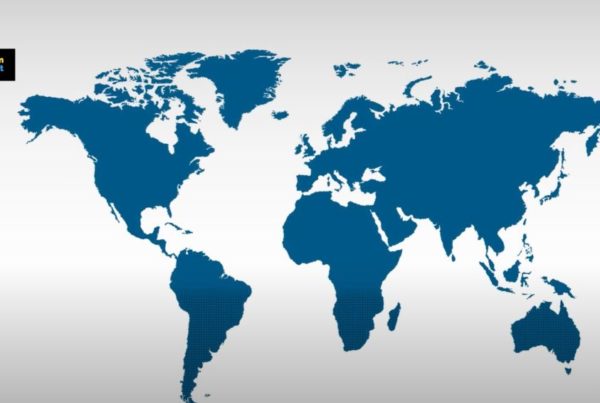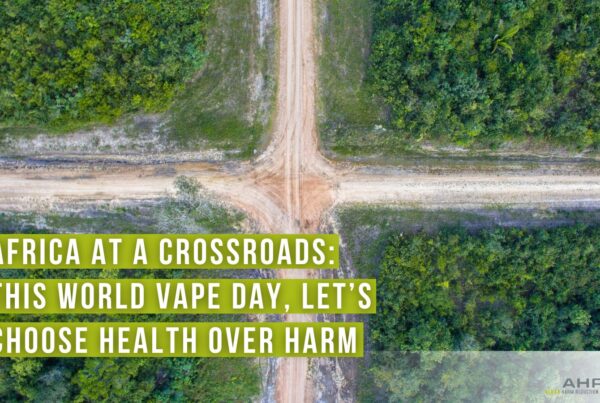Letter to the World Health Organization (WHO) and delegates of the Ninth Conference of Parties (COP9) regarding the Framework Convention on Tobacco Control (FCTC)
Ahead of COP9, the Africa Harm Reduction Alliance (AHRA) warmly welcomes the letter signed by eminent tobacco harm reduction scientists and experts from around the world, urging COP9 delegates to challenge WHO’s stance on alternative nicotine products.
We fully support the letter’s recommendations to WHO, namely that it:
● Considers scientific evidence of the benefits of tobacco harm reduction, in particular, smoke-free products;
● Informs its policies by assessing these benefits properly; and
● Effectively elaborates on and incorporates tobacco harm reduction (THR) into the FCTC, Article 1 (d).
We join the call to make FCTC negotiations more open and accessible to stakeholders with harm-reduction perspectives and echo the need for an independent review to be conducted into WHO and FCTC tobacco policies.
It is imperative that the principal cause of tobacco-related disease and premature death is acknowledged, i.e., COMBUSTION of tobacco. Furthermore, we appeal to delegates and the WHO to recognise how safer alternative products can help to save hundreds of thousands of lives in Africa, which carries one of the heaviest burdens of smoking-related disease in the world. There is growing evidence that nicotine vaping products, oral nicotine pouches and heated tobacco products can help save the lives of adult smokers, who cannot or will not quit cigarette smoking.
Correcting misinformation about THR
The letter signed by 100 independent experts in tobacco and nicotine science and policy (read the letter) –is a timely reminder of the importance of correcting misinformation about THR before COP9 starting on 8 November 2021.
Like the signatories, AHRA believes that WHO is not actively supporting harm reduction strategies, in addition to traditional tobacco control. WHO’s primary responsibility is to help prevent disease and premature death. By opposing THR, WHO is rejecting a public health strategy that could prevent millions of deaths. From a lower- and middle-income country (LMIC) or any perspective, this is totally unacceptable.
There is compelling evidence that smoke-free products, such as e-cigarettes and nicotine pouches, are much less harmful than deadly cigarettes and that they can offer smokers their best chance of quitting a lethal habit for good.
Tobacco harm reduction could be making a major contribution to the UN’s Sustainable Development Goals (SDG), which aim to cut premature deaths from four key non-communicable diseases (NCDs) by one-third by 2030, compared to 2015.
Instead, WHO recommends regulating safer alternatives just as severely as the combustible cigarettes, which are responsible for almost all tobacco-related deaths.
The consequences of the Framework Convention on Tobacco Control
The unintended consequences of such a policy are painfully evident on the African continent, where smoking rates are stagnating or increasing in defiance of global trends. Between 2000 and 2012, smoking rates in Africa increased in 23 countries.
Ninety percent of deaths from NCDs occur in low and middle-income countries.
Offering smokers in these countries the chance to switch to less harmful products would help to turn that tide.
Instead, anti-THR policies mean safer products are over-regulated or over-taxed beyond the reach of ordinary citizens who need them most.
AHRA brings together leading smoking cessation experts in the African medical community to educate policymakers on the benefits of THR products. We view THR as supplementing tobacco control, not competing with it. More significantly, THR science-backed policies could help prevent 146,000 tobacco-related deaths on our continent each year.
We are proud to be adding our voice to the 100 international experts who are urging COP9 delegates to adopt “a more questioning and assertive approach” to WHO’s tobacco policies. In addition, we will actively seek other LMIC voices to join the call on WHO, to embrace harm reduction in tobacco control.
Tobacco harm reduction is a potential lifesaver for Africans and smokers around the world. AHRA appeals to the public health science, policy and practitioner communities to seize this opportunity to reduce the global burden of tobacco-related disease and premature mortality as quickly as possible.
SIGNED BY:
Joseph Magero
Policy analyst, Consumer advocate and Director
Campaign for Safer Alternatives
Africa
Yusuff Adebayo Adebisi
Director for Research and Thought Leadership,
Global Health Focus, Ibadan,
Nigeria
Samuel Mukandi
Tobacco Harm Reduction Advocate
Chairman of Tobacco Harm Reduction
Congo
Olatunji Uche
Consumer Activist and Project Manager
Vaping Saved My Life
World Vapers Alliance Partner
Johannesburg, South Africa
Kurt Yeo
Co-Founder & Consumer Activist
Vaping Saved My Life
World Vapers Alliance Partner
Johannesburg, South Africa
Aishat Alaran
Lead Researcher and Board Member
Campaign for Safer Alternatives
Africa
Seth Kilonzo
Registered Nurse and Founder
Tobacco Harm Reduction
Kenya
Joel Sawa
Researcher and Harm Reduction Advocate
Tobacco Harm Reduction
Uganda
Chimwemwe Ngoma
Media and Communication, Project Leader, THR
Malawi
Rebecca Mwangonde
Registered Nurse and Harm Reduction Advocate
Tobacco Harm Reduction
Zambia
Dr. Kgosi Letlape
President: Africa Harm Reduction Alliance (AHRA)
Dr. Delon Human
CEO: Africa Harm Reduction Alliance (AHRA)
Sahan Lungu
Thomas Gleeson
Hamish Bowly
Ines Elvira Mejia
Mr. Andrew Thompson
Dr. Benjamin Human
ADD YOUR VOICE
THR Topics
Popular Posts
Quick Links
Women in THR
Related Posts
 Letter to the World Health Organization (WHO)
Letter to the World Health Organization (WHO)
Letter to the World Health Organization (WHO)
 Public Health implications of vaping in Germany
Public Health implications of vaping in Germany
Public Health implications of vaping in Germany
 Public Health implications of vaping in the United States of America
Public Health implications of vaping in the United States of America








